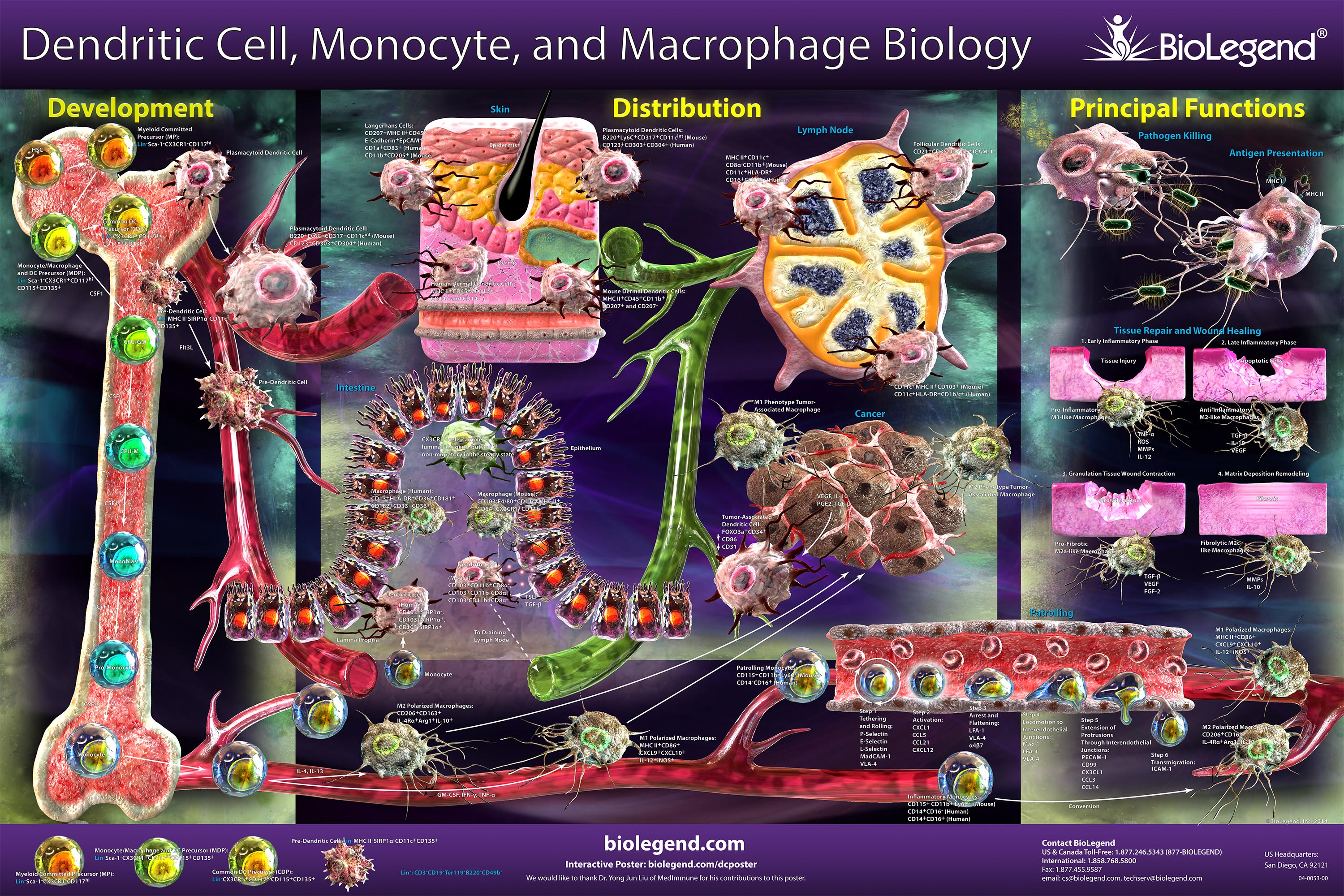Dendritic Cell, Monocyte, and Macrophage Biology
Dendritic cells (DCs) are a key type of antigen-presenting cells that recognize and respond to pathogen-associated signals. Once captured, DCs present these signals to naïve T cells through MHC molecules on their cell surface. Plasmacytoid dendritic cells originate in the bone marrow from myeloid committed progenitors and dendritic cell populations can be found in the intestine, skin, and lymph node. Important dendritic cell markers include B220, Ly6C, CD317, and CD11c (in mouse) and CD123, CD303, and CD304 (in humans). Macrophages have unique functions in pathogen killing, patrolling, and wound repair/healing that distinguishes them from dendritic cells. Macrophages develop from monocytes in the bone marrow and are able to replenish from local progenitors in peripheral tissues including intestine, skin, and lymphoid organs. Macrophages can polarize into M1 or M2 cells which express specific cell markers. M1 macrophages differentiate in the presence of GM-CSF, IFN-γ, and TNF-α and express MHCII, CD86, CXCL9, CXCL10, IL-12, and iNOS. M2 macrophages differentiate in the presence of IL-4 and IL-13 and express CD206, CD163, IL-4R, Arg1, and IL-10.
Click on the poster below to view the interactive version.
 Login / Register
Login / Register 








Follow Us